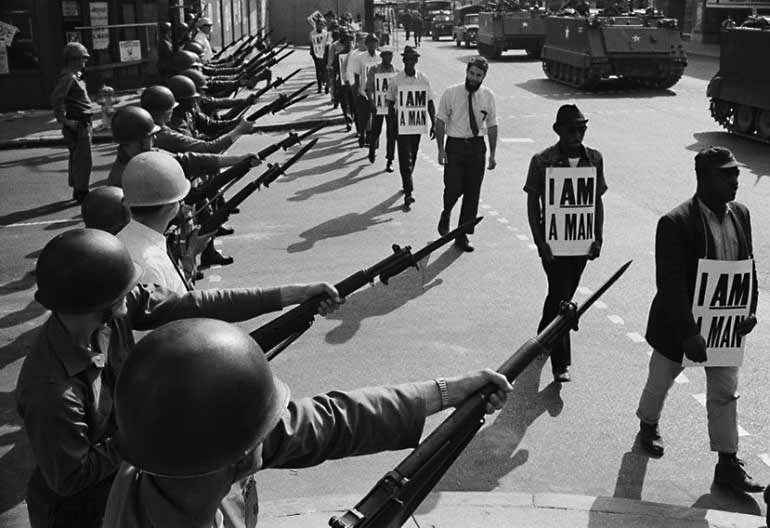
Regardless of the outcome of the unionization campaign in Bessemer, Alabama, the efforts of workers there have delivered a powerful message to the nation.
86 years ago, the National Labor Relations Act was passed sending an equally powerful message to companies large and small that workers have inalienable rights of free speech, legally protected concerted activity for economic improvements, and the right to form, join and assist a union of their choosing.
In the following decades, elected officials answering to corporate America, began to undermine those protections with the Taft-Hartley Act of 1947, and the Labor Management Reporting and Disclosure Act of 1959. These union busting acts would lay the foundations for the rampant anti-unionism from 1980 onward, causing a steep decline in unionization, wages, and working conditions.
It is relatively easy, as a result, to find paystubs of unionized steel workers and manufacturers from 1979 that dwarf the paystubs of far too many working-class Americans over 40 years later. Instead of raising the standards of themselves and their fellow Americans, workers today are left to fight for every remaining scrap of the economic pie, suppressing efforts to raise wages of any other worker or industry they perceive as a threat to their own tiny slice.
Asked about unionization, nearly every worker supports it in theory. In practice, they convey a fear of their employer, and retaliation. Having witnessed the wreckage of countless organizing efforts and work stoppages under the now defunct and meaningless “rights” afforded them under the NLRA, workers rightfully shudder at the prospect of seeking mutual aid and improvement through organizing.
The Alabama Amazon campaign has proven what organizing workers have known for far too long in this country; that the protections under the law offer no protection whatsoever, albeit for employers. While workers risk (and often lose) their everything, companies like Amazon remain well protected under the law.
There exist no penalties for intimidating workers, hiring union busters, threatening goons to seed amongst the workforce, or detective agencies like the Pinkertons to spy on workers exercising their “rights.” Under current law, there is no threat of jail, or even financial repercussions for defying orders not to coerce the workforce, or alter stoplights, or place mailboxes outside, or hire off-duty police to harass activists.
While the members of Workers Essential stand behind the unionization drive at Amazon, there is nothing from the last several decades of labor activism to cause us to believe that an employer like Amazon will ever come to the negotiation table and bargain in good faith. And there is nothing in the recent history of enforcement of workers rights to believe they will ever have to.
Currently, Congress is considering the PRO Act, which would, in a single stroke of a pen, restore the rights of workers to organize without fear of intimidation, illegal firing or harassment. Following speedy passage through the House, the United States Senate holds within its grasp, the power to turn back the clock on over 70 years of union busting, and finally grant American workers the long-withheld rights as intended and promised under the National Labor Relations Act.
While Teamsters Local 238 remains hopeful that the PRO Act will pass, we have stood upon the precipice of wishful legislative and electoral hope too many times in the past already. Working with our brothers and sisters who toil for the Amazon machine, we have together, formed Workers Essential, to organize for direct action and gains in the workplace and in our communities.
Mother Jones said to, “pray for the dead, and fight like hell for the living,” and that is what we intend to continue to do. We shall pray for the long dead protections of the toiling classes under the law, but we shall continue to stand arm-in-arm with our brothers and sisters who suffer at the hands of the wealthiest employer the world has ever known, and fight like hell.
The right to organize was granted to a people by a Congress and a President who sought, above all else, labor peace. Until justice under those rights is fully restored, we aim to make labor peace, like employer respect for the law, a long distant memory.